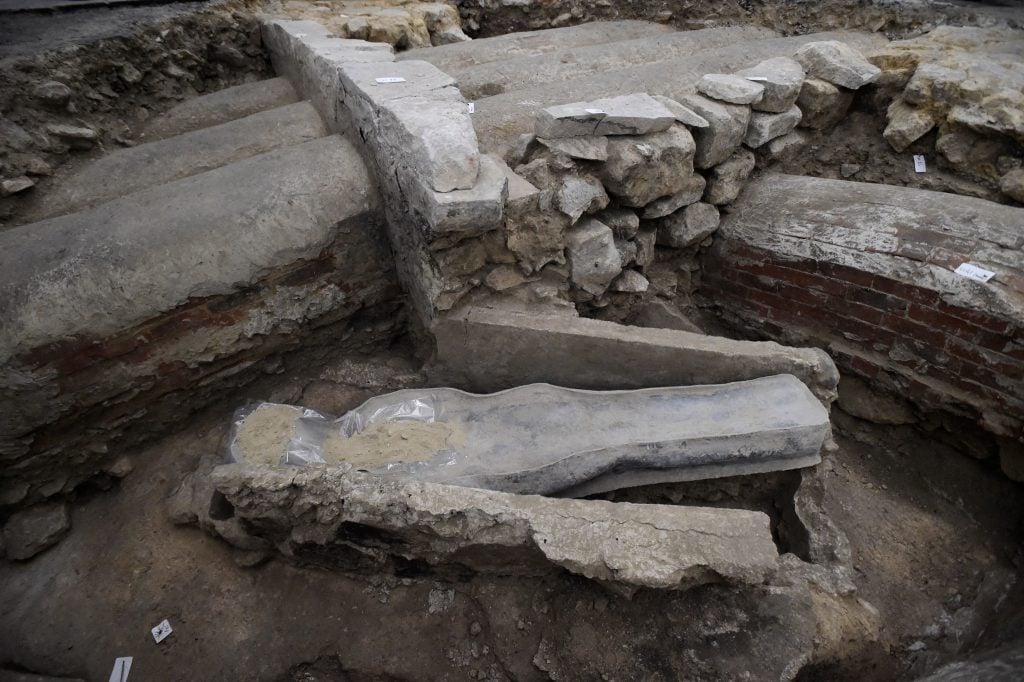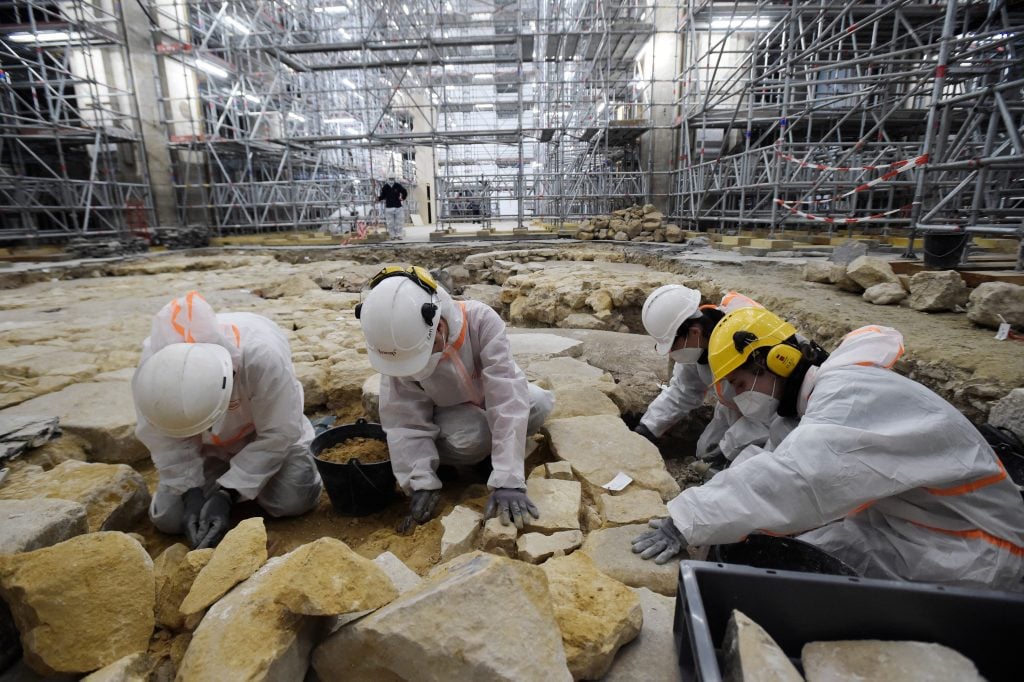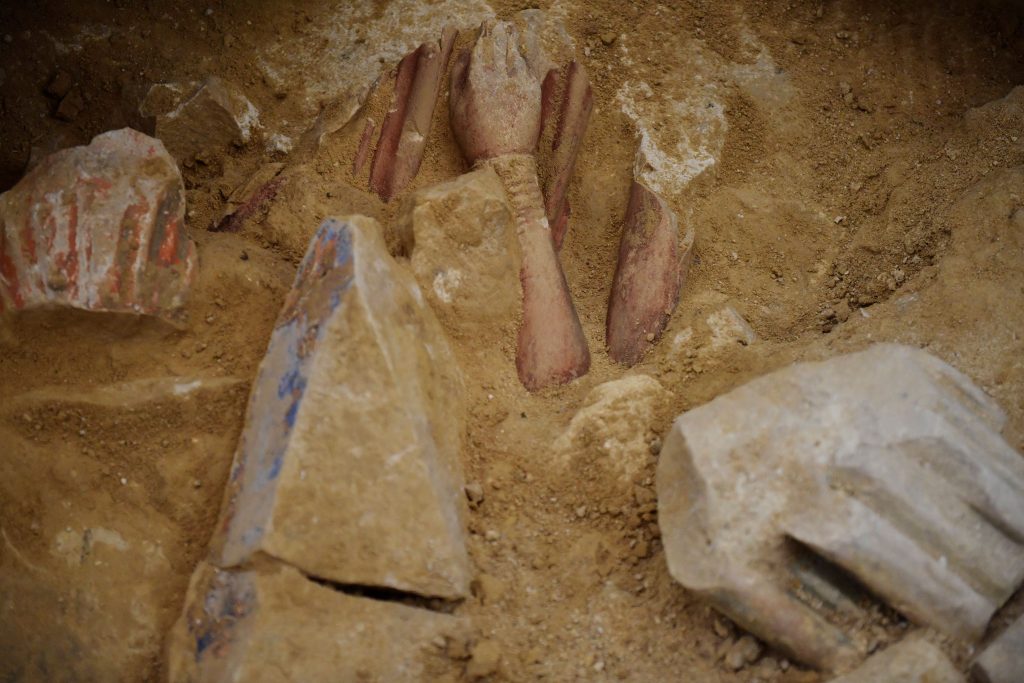Archaeology & History
Workers Rebuilding Notre Dame Have Discovered Previously Unknown Tombs and a Mysterious Sarcophagus Beneath the Cathedral
Using a camera, scientists have glimpsed a figure on a pillow of leaves within the sarcophagus.

Using a camera, scientists have glimpsed a figure on a pillow of leaves within the sarcophagus.

Sarah Cascone

Archaeologists working to restore Paris’s fire-damaged Notre Dame cathedral have discovered something remarkable: previously unknown tombs hidden beneath the 850-year-old Gothic church.
Workers made the discovery while installing ground-level scaffolding to help rebuild the church’s fallen spire, according to a statement from the French Ministry of Culture. When they realized that there was something buried at the spot where the transept crosses the nave, the cathedral called in the Institute for Preventive Archaeological Research to investigate.
What they found were several tombs and a leaden sarcophagus, probably dating to the 14th century. “The floor of the transept crossing has revealed remains of remarkable scientific quality,” French culture minister Roselyne Bachelot said in a statement, according to Reuters.
The investigators also unearthed fragments of painted sculptures that were likely part of a rood screen, an ornate partition typically installed between a church’s chancel and nave. Other parts of the screen discovered during 18th-century renovations led by architect Eugène Viollet-le-Duc are now part of the collection of the Louvre.
In addition, the excavation uncovered a pit beneath the cathedral floor that archaeologists believe would have been dug around 1230, during construction of the cathedral.

Archaeologists excavate the floor of Notre Dame Cathedral after the discovery of a 14th century lead sarcophagus, in Paris, on March 15, 2022. Photo by Julien de Rosa/AFP via Getty Images.
Because the sarcophagus was cracked, archaeologists were able to insert a mini endoscopic camera to examine the human remains within.
“We saw a very well-preserved body,” Christophe Besnier, the lead archaeologist said during a tour of the excavations on Tuesday, according to the Telegraph. “You can glimpse pieces of fabric, hair, and above all a pillow of leaves on top of the head, a well-known phenomenon when religious leaders were buried.”
The dead person may have been a high-ranking religious dignitary. Historians know of some 400 people buried at Notre Dame, including bishops and archbishops.

A photo shows antique objects found by archaeologists in the floor of Notre Dame Cathedral in Paris, on March 15, 2022. Photo by Julien de Rosa/AFP via Getty Images.
Notre Dame was nearly destroyed in a devastating 2019 fire that burned down the beloved church’s roof and spire. In the aftermath of the blaze, French president Emmanuel Macron vowed to rebuilt the landmark by 2024, when the eyes of the world would be on the Paris Olympics.
That goal, always ambitious, was threatened by the pandemic, as lockdown restrictions prevented work for much of 2020. But in September, Rebâtir Notre-Dame de Paris, the task force in charge of renovations, announced that the rebuilding effort was on track to be finished in spring 2024, meeting Macron’s deadline.
The historic discovery of the unknown burial has delayed work further. Excavations began on February 2, and are slated to continue through March 25, when renovations have to resume.